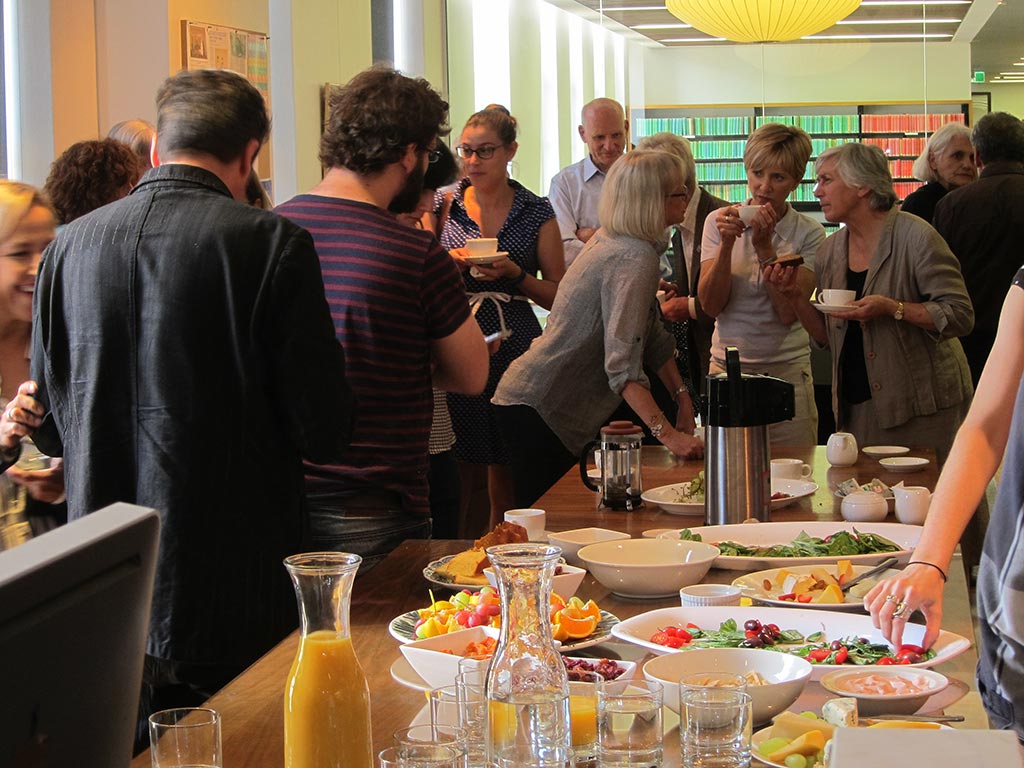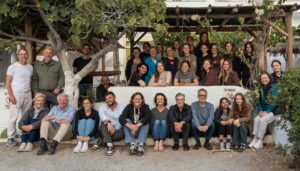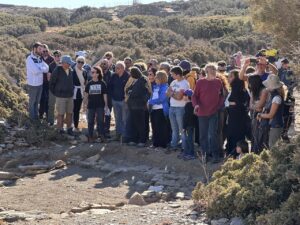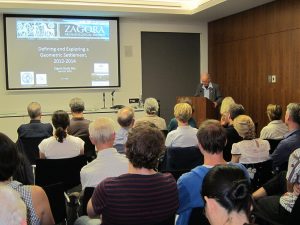
Web Producer
An enthusiastic audience of some eighty people attended the Zagora Study Day on Saturday 18 April 2015.
Professor Alexander Cambitoglou, director of the excavation campaigns at Zagora in the late 1960s and early 70s, and also Director of the Australian Archaeological Institute at Athens (AAIA), spoke briefly about the project and introduced the first presenter, Professor Meg Miller.
As one of the three co-directors (with Associate Professor Lesley Beaumont and Dr Stavros Paspalas) of the Zagora Archaeological Project (ZAP), Meg gave an overview of the aims and aspirations and also the exciting findings of the 2012-2014 excavation and study seasons.
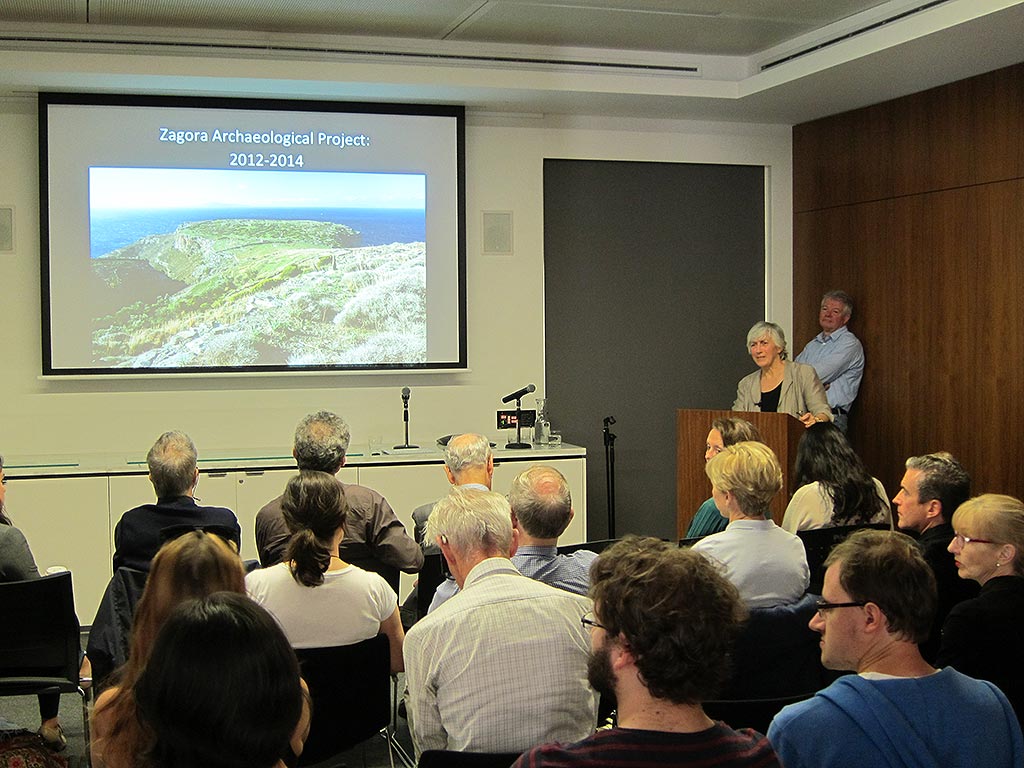
Then Dr Stavros Paspalas gave a presentation about what the fine ceramic, transport amphorae (bulk carrying vessels, or, as Stavros put it jovially, ‘the ten-gallon drums of their day’) and bronze finds revealed about likely trade routes and commercial contact between Zagora and the wider Aegean, and how such interactions may have affected Zagora settlement life.
The tea break gave people a chance to catch up – for some, a chance to see colleagues they hadn’t seen since we were on Andros last year, working on the Zagora Project.
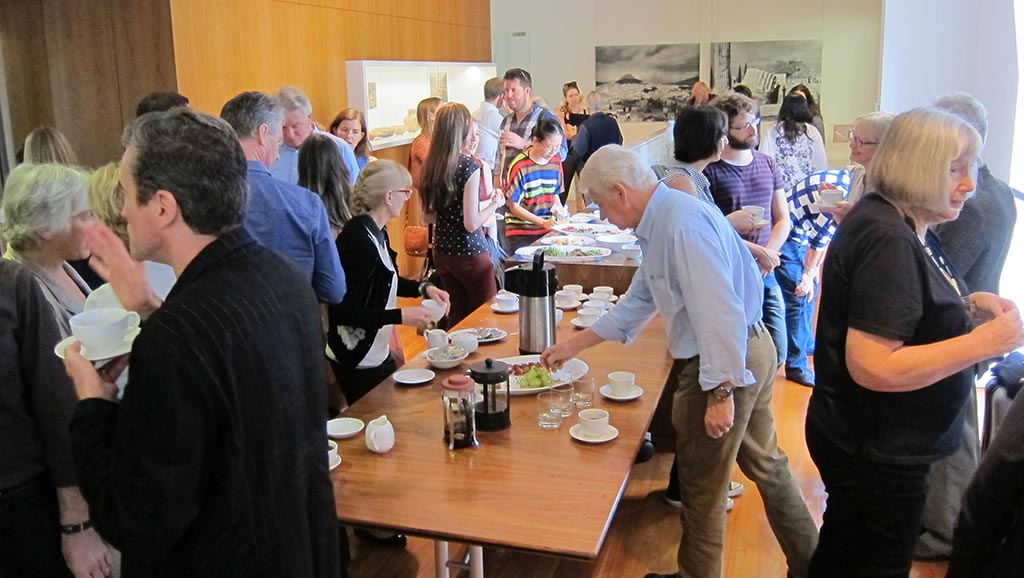
After the break Ms Beatrice McLoughlin gave an illustrated overview of the storage and kitchen ceramics found at Zagora and similar ceramics from elsewhere, from the perspective of Greek provincial cookery and domestic life at Zagora.
Finally, Associate Professor Lesley Beaumont described the archaeological architectural conservation work that had been done at Zagora in the 1960s and 70s and also since excavations resumed in 2012. She presented the compelling case for the need for conservation and also articulated some of the decisions that need to be made in the best interests of the site.
There will be more about the site conservation on this blog.
If you are interested in attending information sessions such as this, please email Wayne Mullen at AAIA, and he will add you to the list to receive notifications about future events.
